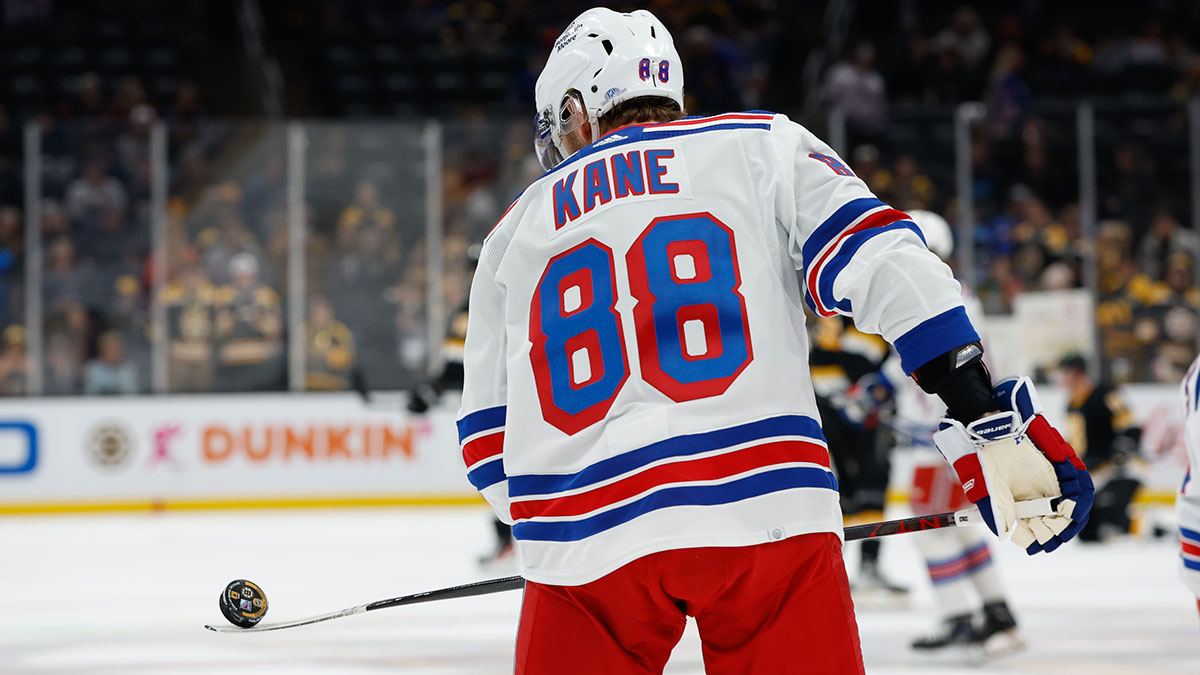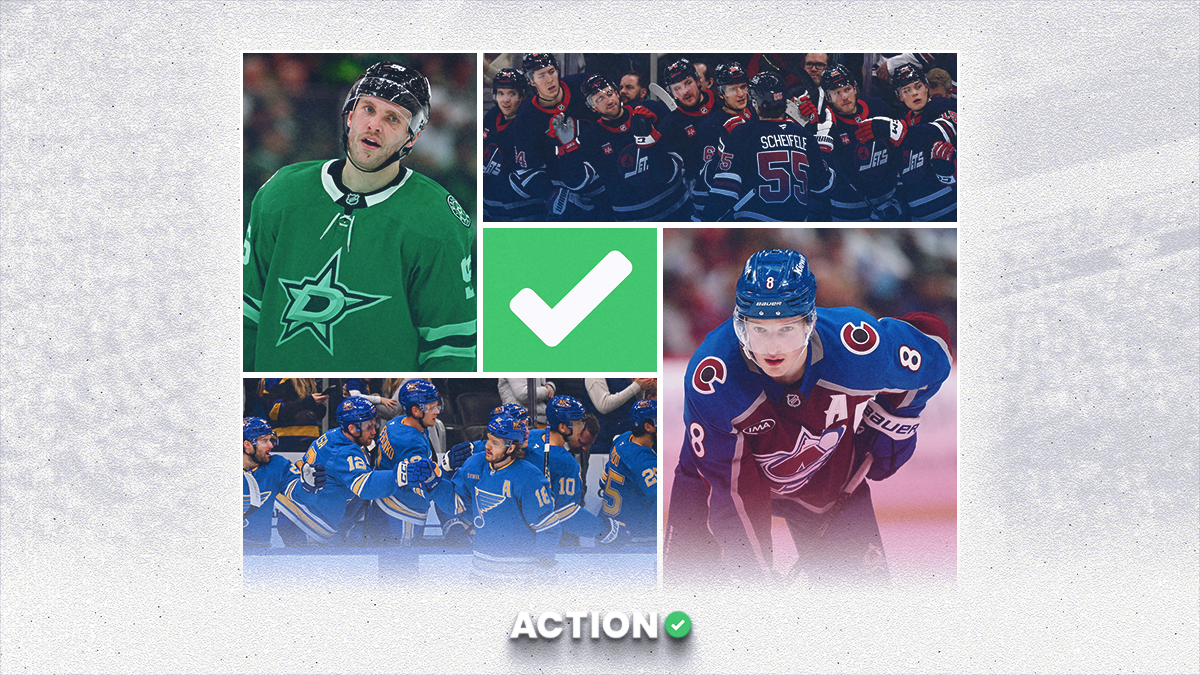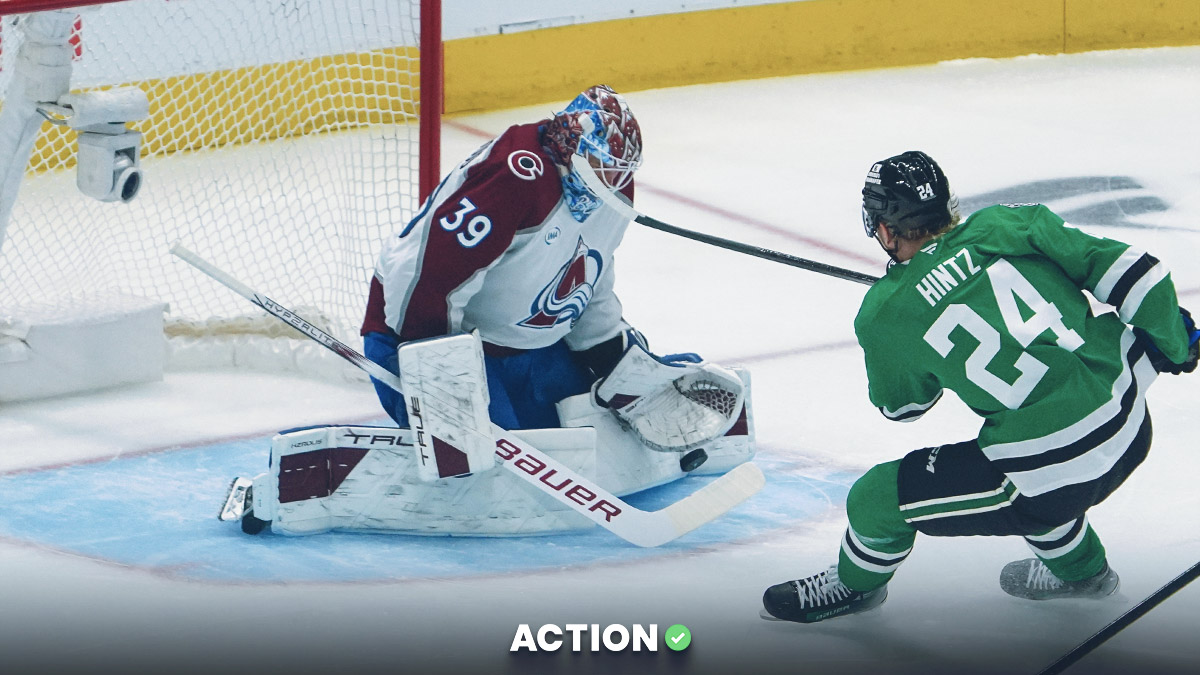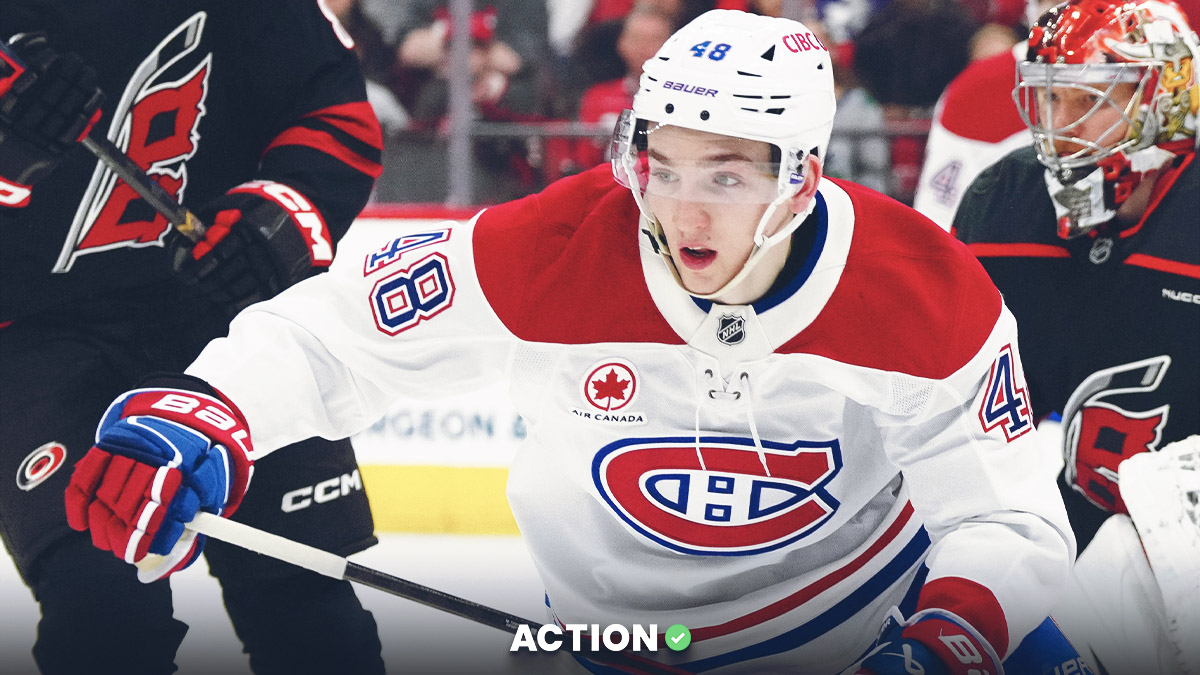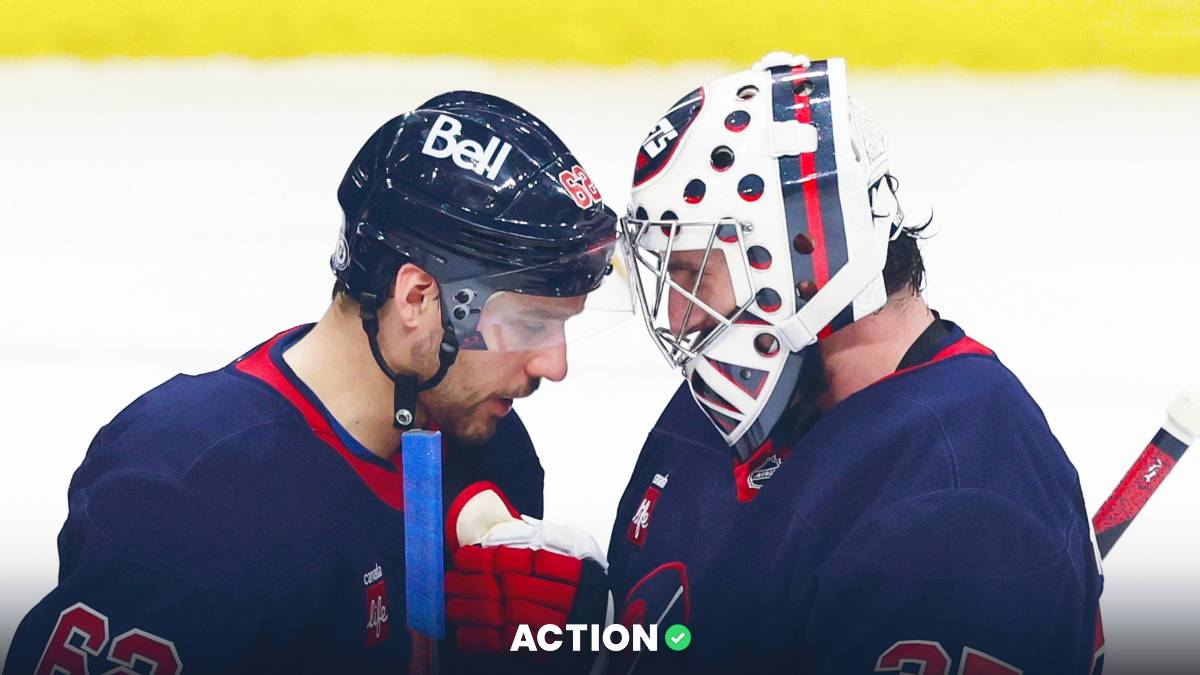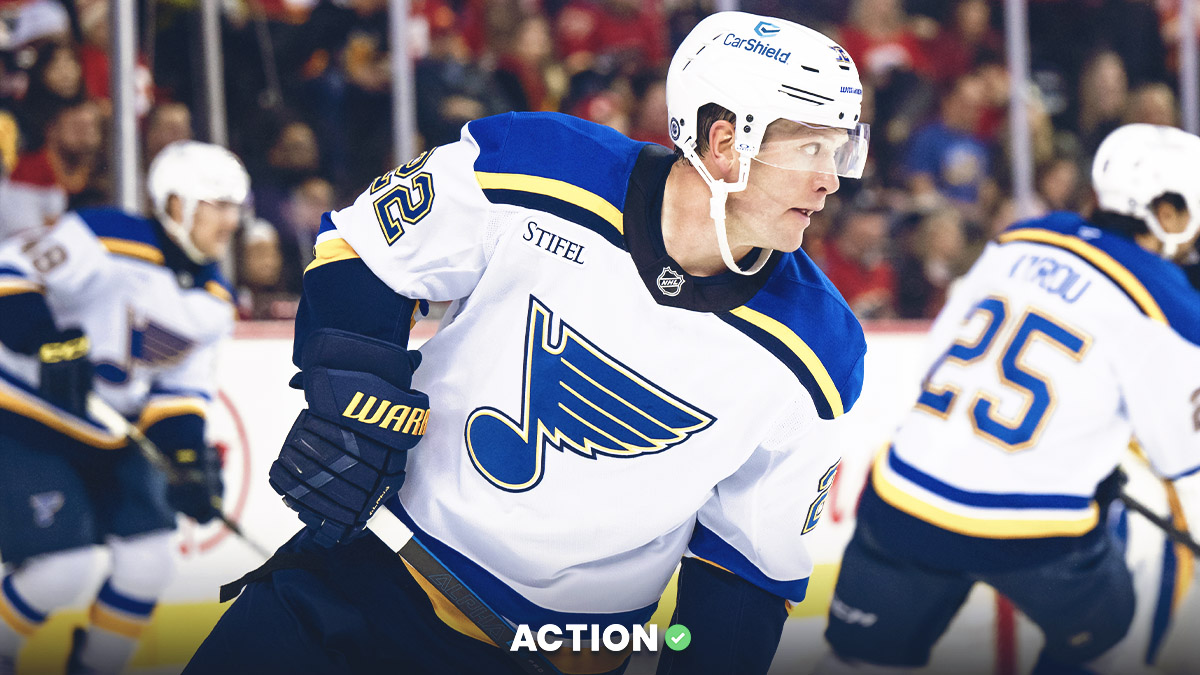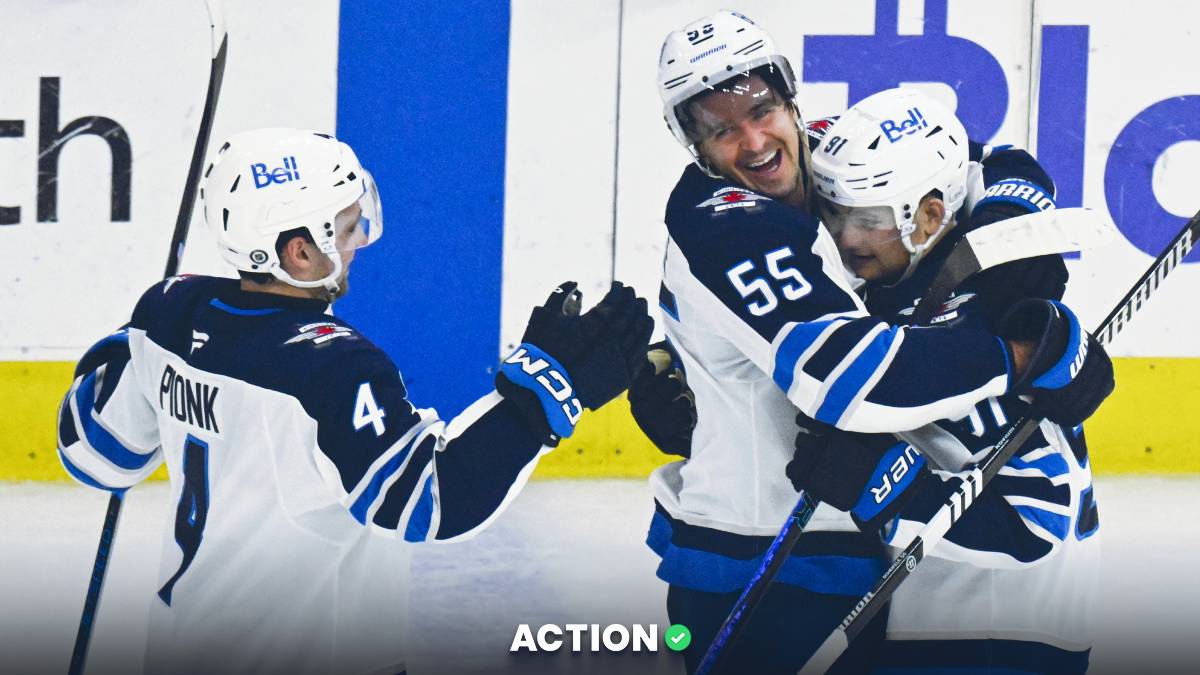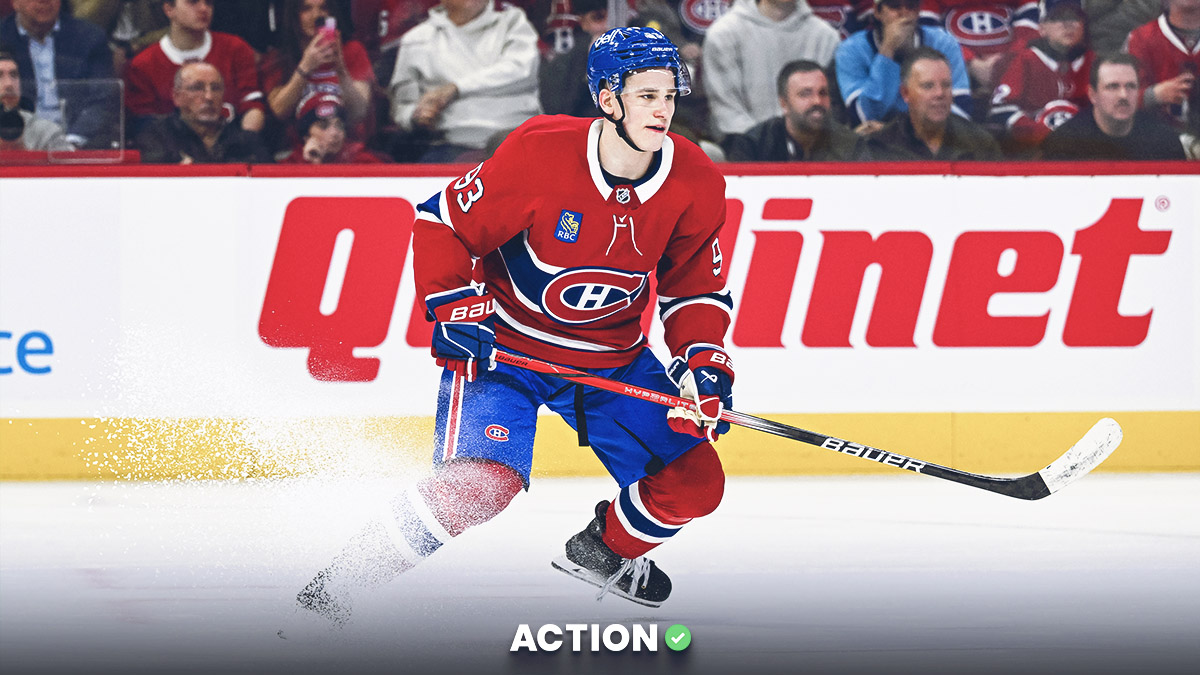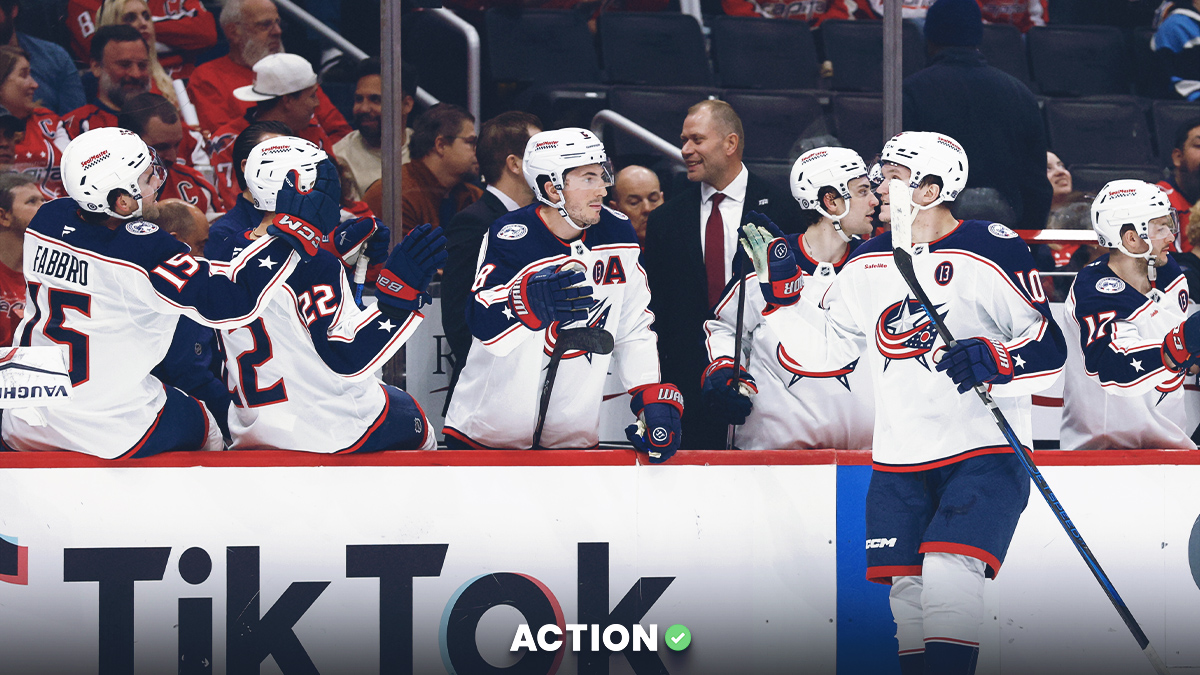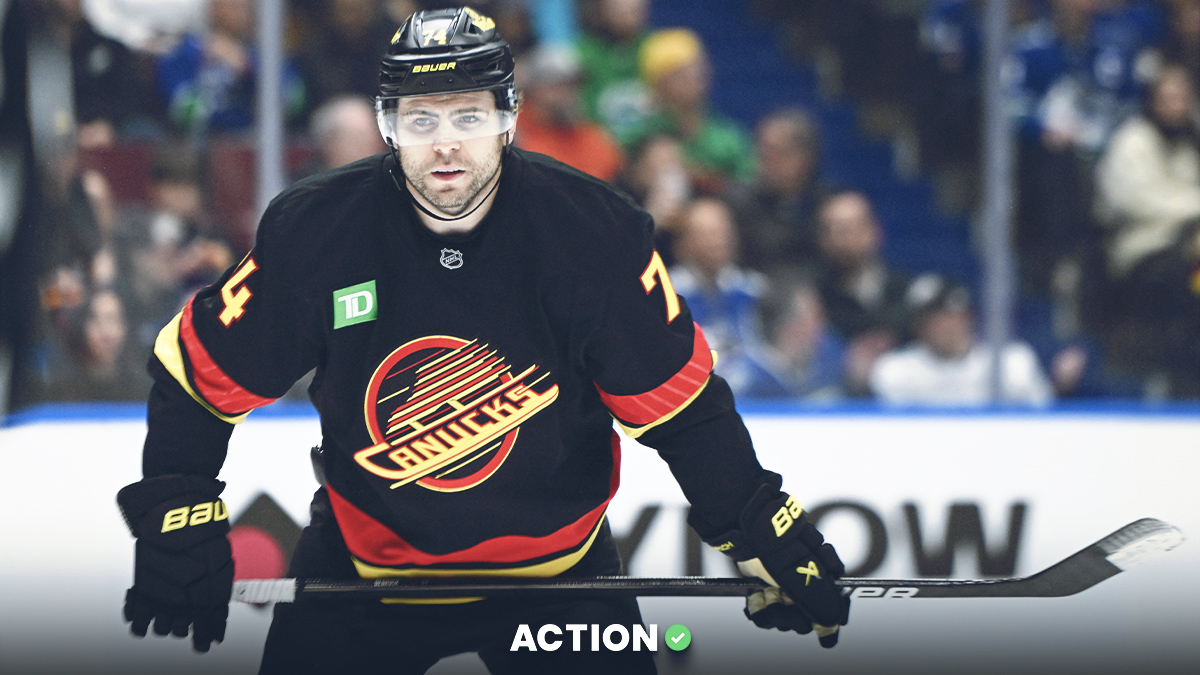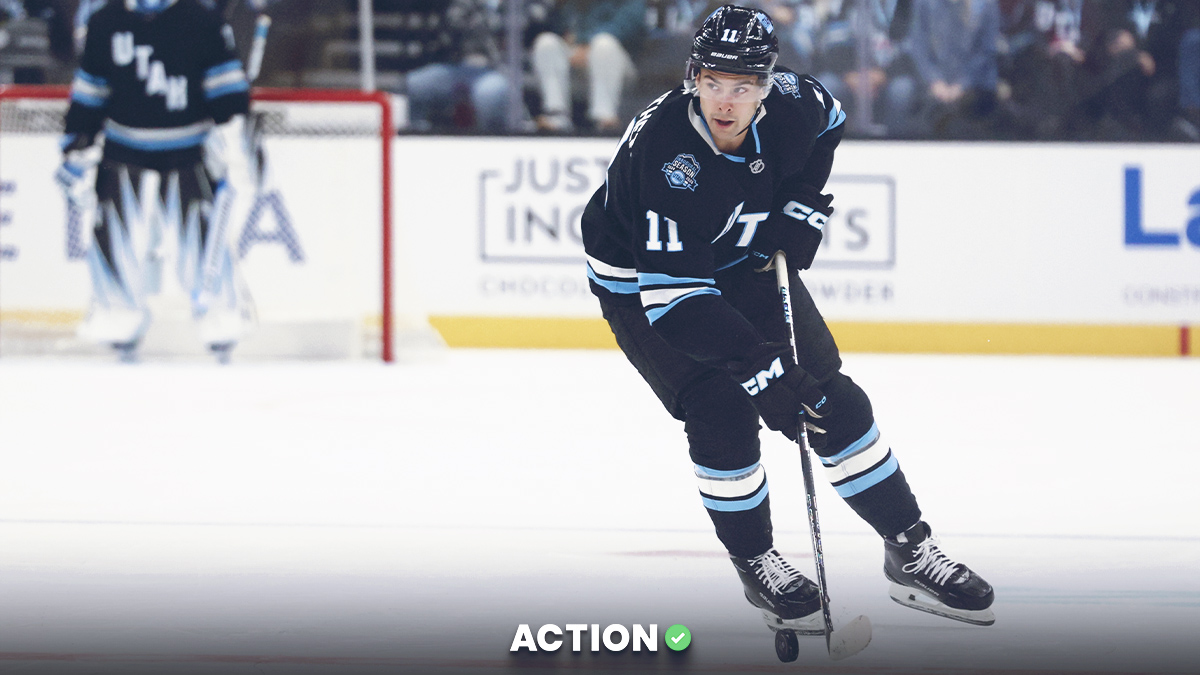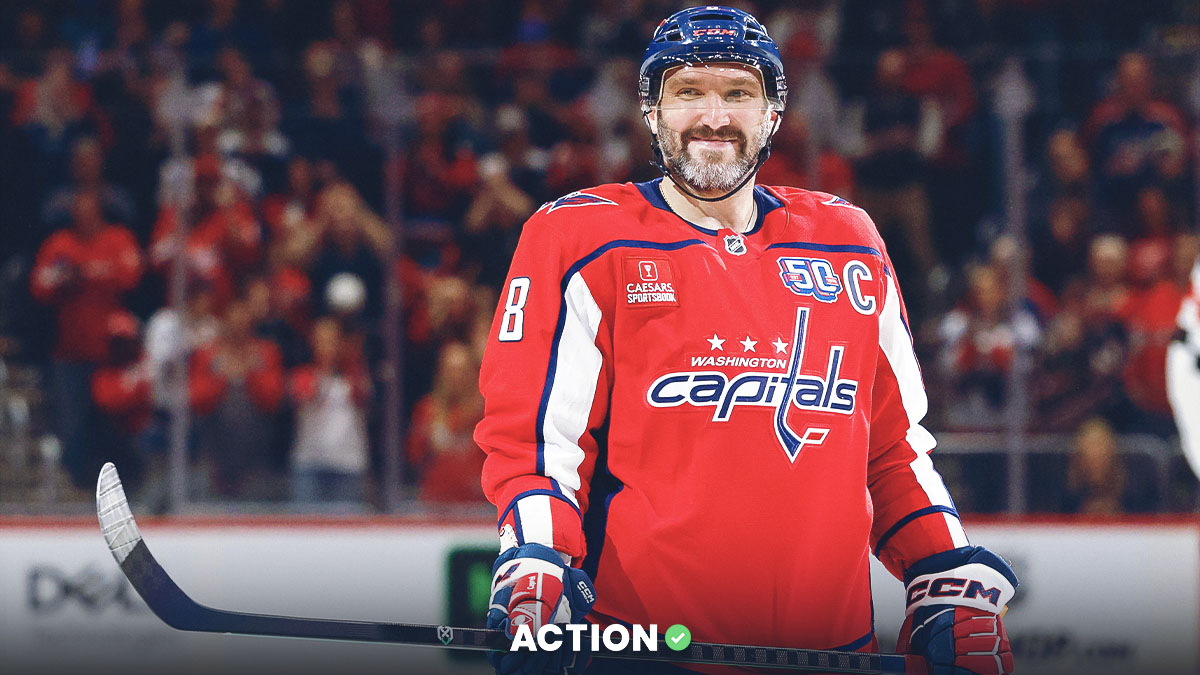Now that the dust has settled on a wacky 2022-23 NHL Trade Deadline, it’s a great moment to reflect on how these mid-season moves created new trends in the betting world.
The trade deadline can have a polarizing effect on parting the red sea that is the NHL. It's the final checkpoint of the regular season that gives good teams an auction to buy, bad teams a market to sell and those on the fringe an ultimatum to decide.
While front offices around the league make heavy decisions, bettors either readapt or double down. Naturally, we see a new betting landscape down the final stretch. And the gap between the league's best and worst teams hasn't been wider, at least in the modern era.
But how much do bettors really know after these moves? Does the NHL Trade Deadline give hockey betting a surge?
We peeled back the data on the NHL Trade Deadline though the years in the Action App to examine these betting behaviors.
How Did Bettors React to The NHL Trade Deadline?
There was a little bit of everything this deadline: Franchise cornerstones in Patrick Kane, Vladimir Tarasenko and Ryan O’Reilly; emerging stars such as Timo Meir and Jakob Chychrun; and edgy role-players like Max Domi and Tyler Bertuzzi all found themselves dawning new colors.
We identified the New York Rangers acquisition of Tarasenko from the St. Louis Blues on Feb. 9 as the unofficial "start of the deadline" since it became a clear catalyst for scores of subsequent transactions around the league. That deal was the first of 63 through the 3 p.m. mark on March 3.
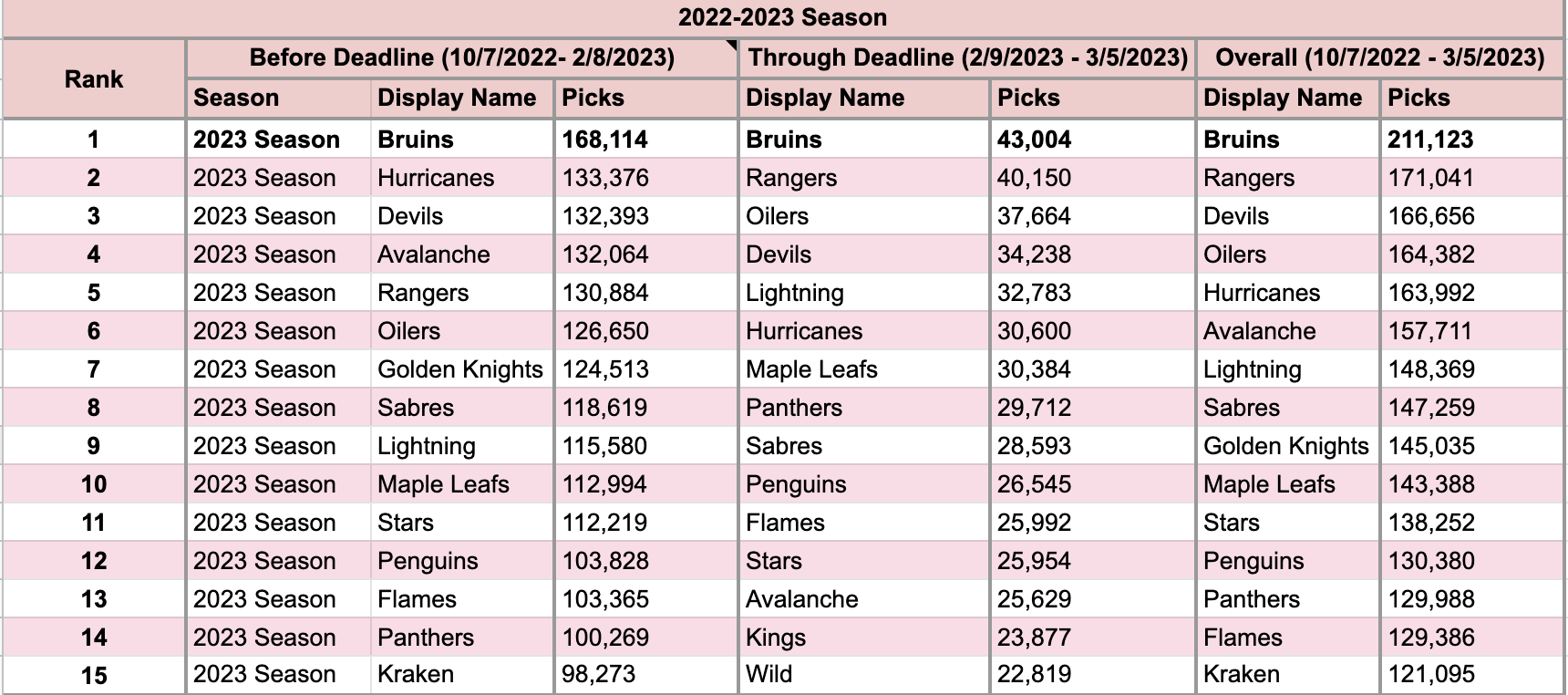
The arrival of blue chip goal scorers in Tarasenko and Kane gave the Rangers a Stanley Cup futures odds boost from +1800 to +1250 — the league's biggest odds boost. In doing so, Chris Drury's efforts hurdled the Rangers from the fifth-most bet team to the second.
Given the record-breaking pace the Bruins are on, it's not surprising to see them having sustained the most bets through the changes around the league. They acquired Bertuzzi, Dmitry Orlov and Garnet Hathaway in the meantime and remain the favorites for the cup, improving their odds to +410.
Public bettors weren't impressed with the Hurricanes though. Their acquisitions of Jesse Puljujarvi andShayne Gostisphere made bettors more apprehensive and dropped them from the season's second-most bet team to the sixth-most.
Vegas plummeted out of the top 15 most picked altogether and saw the worst odds hit from +1250 to +1450 through the deadline.
Betting Trends in Past NHL Trade Deadlines
In order to identify betting trends on an even scale, we limited the data to regular season only. Otherwise, the teams that made it furthest in the playoffs would reflect the most picks since they were the only teams left to bet on at a certain point.

In the previous five seasons, the team that’s received the highest quantity of picks prior to the deadline vs. after has been usurped four times. The lone year that it remained constant was the 2017-18 Golden Knights, who subsequently lost in the Stanley Cup Final to the No. 4 most bet overall team that regular season: the Washington Capitals.

The Bruins became the favorite to bet in 2018-19 down the stretch. They made deals for Charlie Coyle and Marcus Johansson at the deadline and would lose in seven games to St. Louis in the Stanley Cup Final.

There's a smaller sample size after the deadline in 2019-20 because the season would end a couple weeks into March. But in that short time, the Capitals were massively under picked after the deadline. Washington brought in Ilya Kovalchuk, Brenden Dillon and Daniel Sprong and dropped from the season's most popular team to its 12th.
Pittsburgh saw a raise from fifth to second; they added a variety of new personnel in Jason Zucker, Patrick Marleau, Connor Sheary and Evan Rodrigues.
Although played many months later and in an obscure environment, the Lightning would win the Cup despite ranking No. 7 overall on the season — their lowest rank amongst the last five years. I guess getting swept by Columbus in the first round the previous year really had its impression on bettors.

This was another strange season to look at since it was 56 games and had a January start. With that said, there was less time between the start of the year and the April 12, 2021 deadline, so front offices were in a unique situation.
But some moves revealed themselves in the data as the then defending Cup Champion Lightning dropped to ninth after a quiet deadline (acquired Brian Lashoff) and Pittsburgh got extra attention again after bringing in Jeff Carter.
Boston got a surge in welcoming Taylor Hall, while Vegas became the favorite team to bet on the year. Neither team would reach the Cup Final and the Lightning would repeat.

The 2021-22 season was the first full-length, regular formatted season in three years, so the data had a standard time to cook again.
Tyler Toffoli's arrival in Calgary accelerated the Flames up to the second-most bet team post deadline. The Hurricanes didn't spearhead their well-balanced lineup with enough star power — adding Max Domi and dropping to ninth.
The Avalanche received more overall picks than any other team on record and that validated itself with their Cup victory in June.
The NHL Trade Deadline Amasses More Bets Each Season
Since the repeal of the Professional and Amateur Sports Protection Act (PASPA) in May 2018, nineteen states have launched legal online sports betting for their residents. In that time, hockey betting has grown progressively each passing season.
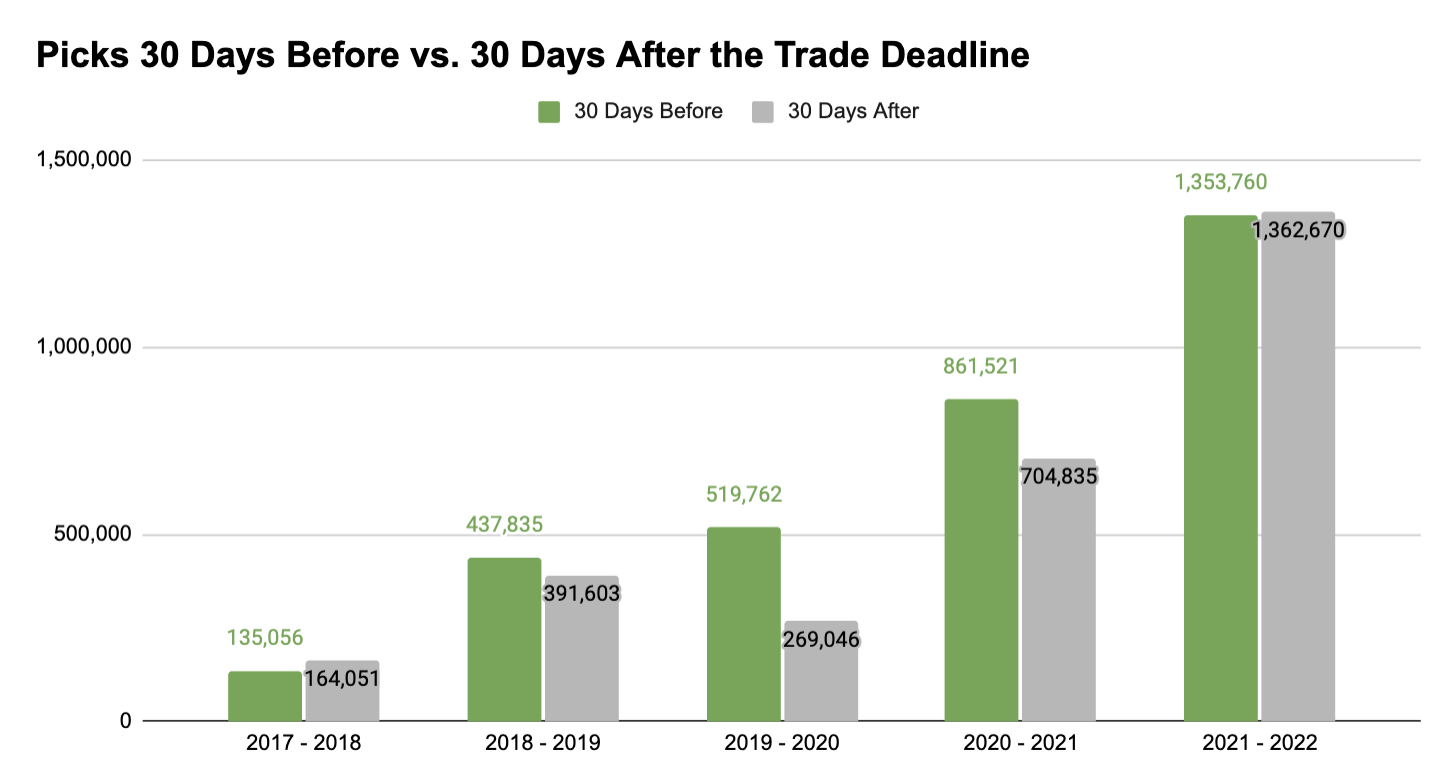
In looking at the previous five seasons, 2021-22 was the only one where the month all the moves were being dealt vs. the month after the deadline were on par.
Perhaps this was in correlation to that being the first season in NHL history that 13 of the 16 playoff teams eclipsed the 100-point plateau. It was also the first standard-length season in three years.

The trade deadline is historically in late February, but due to COVID-19 schedule modifications in the last two seasons, it's gone down in late March and mid-April. Still, the strength of past February deadlines prevailed in the most popular month to place hockey bets.
Where is Hockey Betting Most Prevalent Post NHL Trade Deadline?
So who cares about the NHL Trade Deadline? Ostensibly, New York.
After the 2021-22 deadline on March 21, it owned 9% of all hockey bets tracked through our app. In the time since this season's March 3 mark, the Empire State garnered 11%.
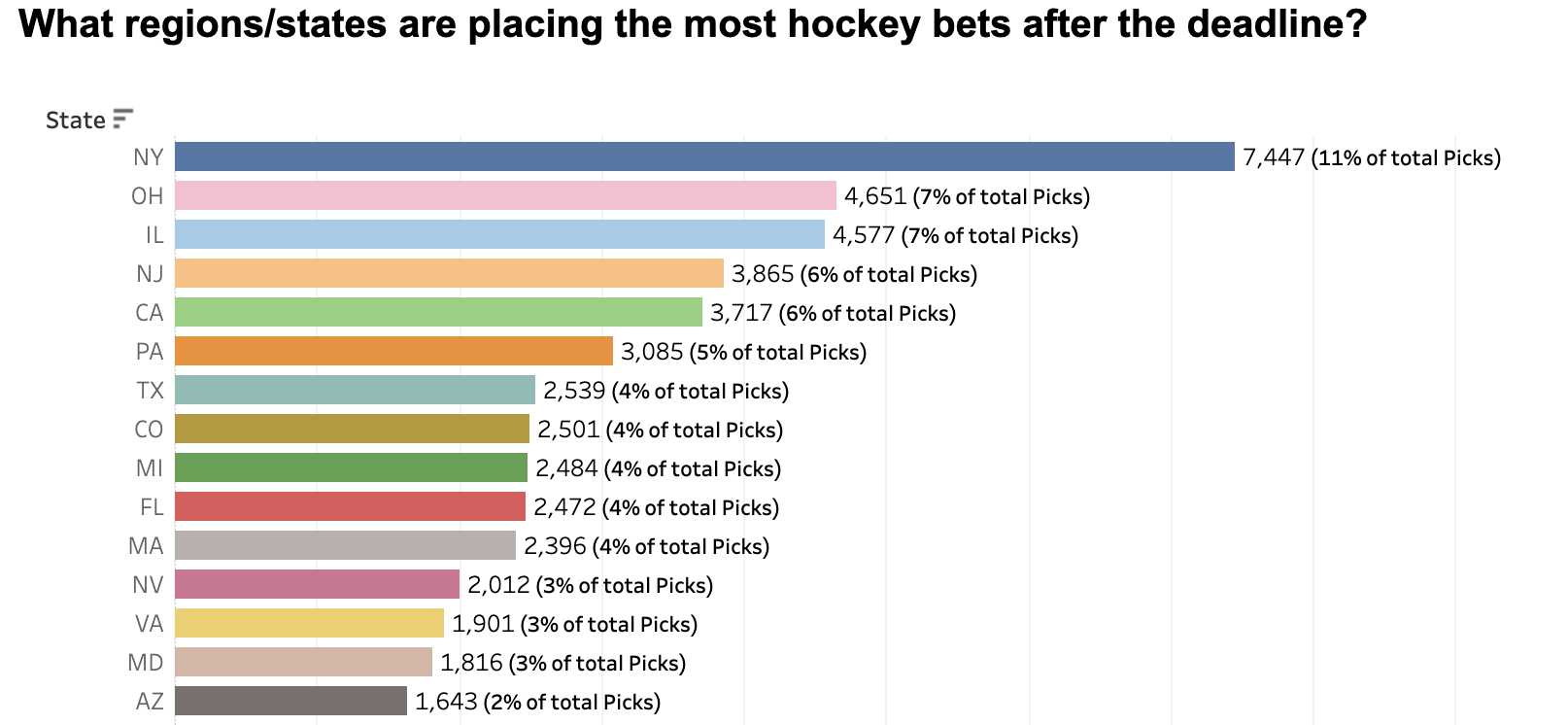
With the Devils well on their way to their first playoff berth since 2017-18, all three New York City market teams are churning local bets.
Each of these clubs made splashes at the 2023 trade deadline: the aforementioned Rangers moves along with the Devils and Islanders adding more scoring punch with their additions of Meier and Bo Horvat, respectively.
Local teams adding talent any given season can add some zest to the resident bettors, but some states are just inherent hockey betting territories.
New York was the hottest state for bettors to track post-deadline picks from in five of the last six seasons we pulled. This revealed an interesting trend since New York State only legalized online sports gambling in January 2022, yet bettors were still tracking their picks from there in years prior.
New Jersey remained within the top five states in each of the last five seasons, while Illinois in the top three each of the last six. These markets just love to bet hockey after the deadline.
How to Bet on NHL Moving Forward
If you're looking to join the data and wager on the NHL, give Action Network’s NHL homepage a gander for comprehensive insight and analysis on games daily.
We've also provided a guide for the best pricing for NHL betting in our sportsbook review hub.


